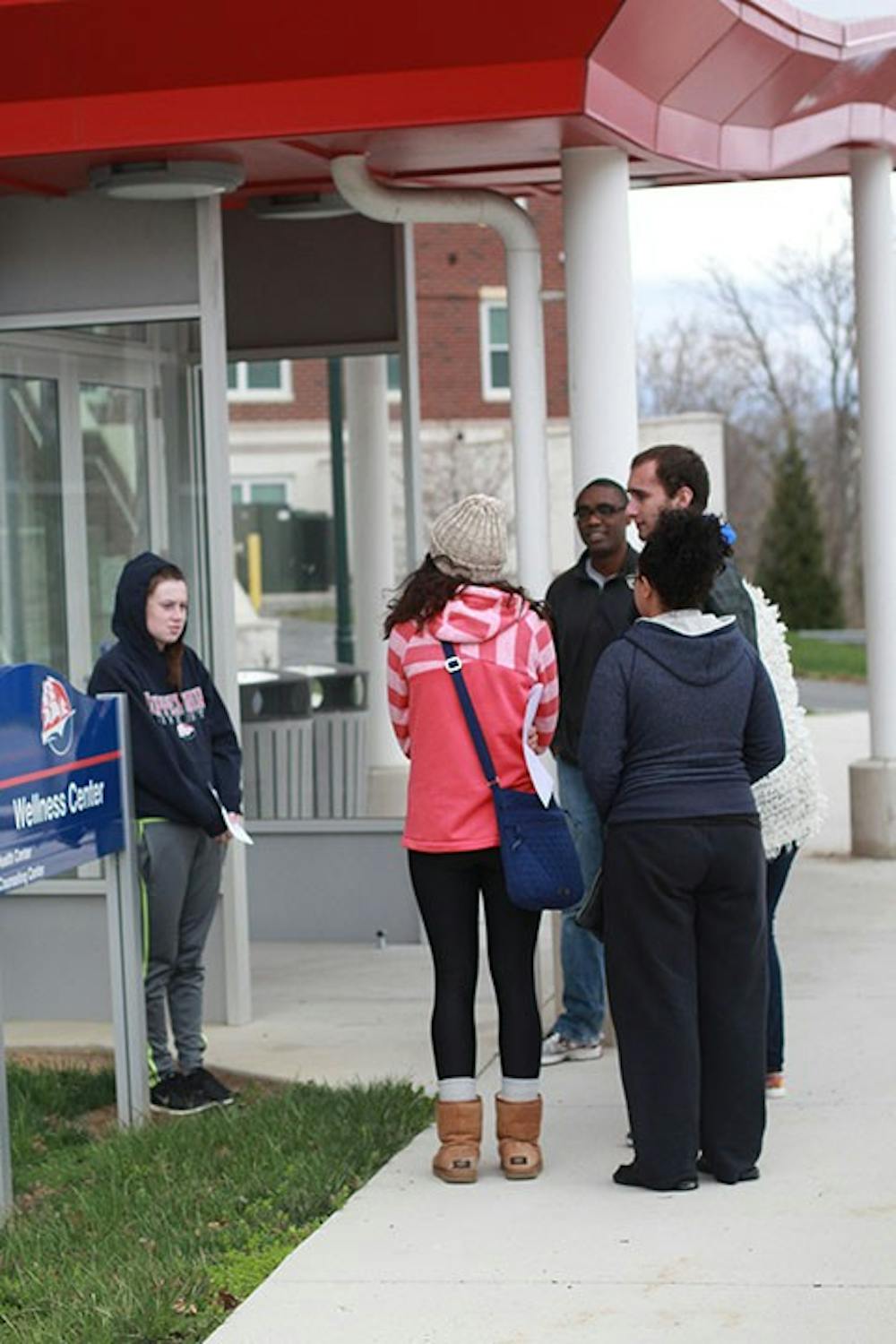The Disability Awareness Club held a scavenger hunt Saturday to raise awareness about the difficulties physically disabled students have navigating the Shippensburg University campus on Saturday.
The hunt was an alternative to the Wheelchair Project held previous years where student leaders would spend the day in wheelchairs.
“Sometimes when you put able-bodied people in a wheelchair it can come off as mocking an individual with a physical disability and we didn’t want to do that,” said Alexa Moran, president of the Disabilities Awareness Club. “So we decided a better way to represent inaccessibility on campus would be to send people to places that are inaccessible or not easily accessible instead.”
The two-hour hunt highlighted five locations the club felt exemplified the issues at SU including Etter Health Center, Franklin Science Center Room 030, Shippen Hall Room 224, the Disability Services Office in Horton Hall Room 312 and Dauphin Humanities Center Room 051. Issues included roundabout American with Disabilities Act (ADA) compliant paths that double travel times between buildings; hard to find entrance ramps usually located at backdoors; hard to find elevators, ADA room entrances blocked off by storage; and step-filled lecture halls that strand handicapped individuals in the rear of classrooms.
Hannah Schmidt, vice president of the Disability Awareness Club, set up the event.
“We want to talk to students about the differences between accessibility and universal design,” Schmidt said.
While SU is accessible under ADA standards, it still can be difficult for disabled students to navigate around campus.
“That is what our project is implementing. Universal design goes above and beyond those requirements and make campus welcoming for every individual here,” Schmidt said.
David Batemant, a professor of special education, gave a speech before the hunt began.
“People who have physical disabilities look at you right now as what we technically refer to as ‘temporarily abled-bodied,’” Batemant said. “You can walk, move around, choose where to sit in here, can go up and down stairs. Just temporarily. Your future, at some point, I can guaran-damn-tee you will have a disability.”
The speech focused on the changes in American society since the passage of the ADA in 1990. “[It’s] the things you take for granted. The automatic doors at Walmart, they are not designed for you, they are designed for people who use wheelchairs,” Batemant said.
Sophomore Steven Wertz joined the club during the fall 2016 semester after helping disabled people as a volunteer firefighter.
“Just sitting in a classroom looking around, you never take into account where someone with a wheelchair could sit,” Wertz said. “They have special designated spots to sit but they are away from their peers. I just always felt that it’s not fair for people with disabilities.”
“It was eye opening,” junior psychology major Kayla Bethea said. “Cause I know a number of people who go to the university that have some sort of disability. But to take the extra laps around campus, look for doors that don’t have steps and if you need an elevator key you need to go all the way to Horton. It’s feasible but not really good.”


The Slate welcomes thoughtful discussion on all of our stories, but please keep comments civil and on-topic. Read our full guidelines here.